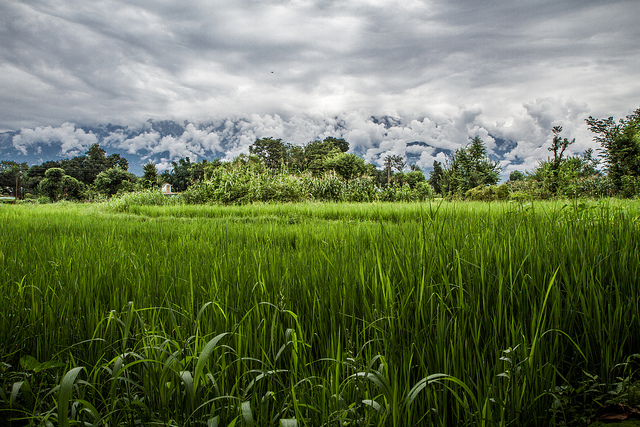The U.N. Marrakesh Climate Change Conference, also known as the twenty-second session of the Conference of the Parties (COP22), will be held in Morocco Nov. 7-18 with the theme “Africa, Adaptation and Agriculture.” This year’s meeting will focus on countries turning their pledges into specific objectives and strategies to achieve the historic agreement reached in Paris at COP21, which is to cap climate change well below two degrees Celsius of warming in this century. Translating pledges into results will require robust evidence and sustained political will. In many developing countries, evidence and political will converge in the agriculture sector, which has the potential to reduce greenhouse gas (GHG) emission intensity without compromising economic growth.
IFPRI’s climate change research has played a critical role informing the global dialogue regarding agriculture and climate change, including COP negotiations. In 2015, IFPRI researchers, working closely with Colombia’s Ministry of the Environment and Sustainable Development (MADS), the CGIAR Research Program on Climate Change, Agriculture and Food Security (CCAFS), the University of Los Andes, and the International Center for Tropical Agriculture (CIAT), successfully identified agricultural strategies that support the reduction of GHG emissions and were compatible with the national economic development goals. The study, “Low Emission Development Strategies in Agriculture. An Agriculture, Forestry, and Other Land Uses (AFOLU) Perspective,” determined that the agriculture, forestry and other land uses (AFOLU) sector offers great opportunities for both climate change mitigation and improved productivity. In preparation for COP21, the ministry drew heavily from the study’s compelling findings and included the contributions of the AFOLU sector in its official Intended National Determined Contributions (INDC). In that document, Colombia offered an ambitious pledge to reduce 20 percent of its GHG emission by 2030, exemplifying a strong resolve to transform its development model to focus not only on economic growth but also long-term sustainability.
An evaluation of climate change impacts on agriculture in the Philippines, conducted by IFPRI and the Philippine National Economic and Development Authority (NEDA), was also presented at the 2015 Global Landscapes Forum (GLF), held alongside the UN climate negotiations. The study projected that climate change would increase the number of people at risk of hunger by 1.4 million by 2030 and 2.5 million by 2050. However, increasing investments in agricultural research and irrigation can dramatically reduce these numbers. This joint assessment demonstrated that to secure economic growth and social welfare, it is necessary to address the effects of climate change on agriculture.
Leading up to COP22, 27 African countries came together and adopted the Marrakesh Declaration in October 2016 to place the adaptation of African agriculture at the heart of the negotiations. IFPRI will be presenting select new research at the conference, including: coping with water scarcity; evidence that global hunger can be significantly curbed by investing in agricultural research focused on climate change adaptation and mitigation; and study findings on the impact of climate-smart agriculture adaptation in Africa. On November 16, 2016, IFPRI will host a session, “Informing the policymaking landscape: From research to action in the fight against climate change and hunger,” at this year’s GLF. The practical session will explore what information researchers can provide policymakers at global, national and local levels to develop and implement effective plans based on solid science.
Janna de la Paz is a Program Analyst at IFPRI. To view/download/print a PDF of this post, click here. For more about how IFPRI research is influencing stakeholders and policy debates around the world, see the Outcome Stories blog.







